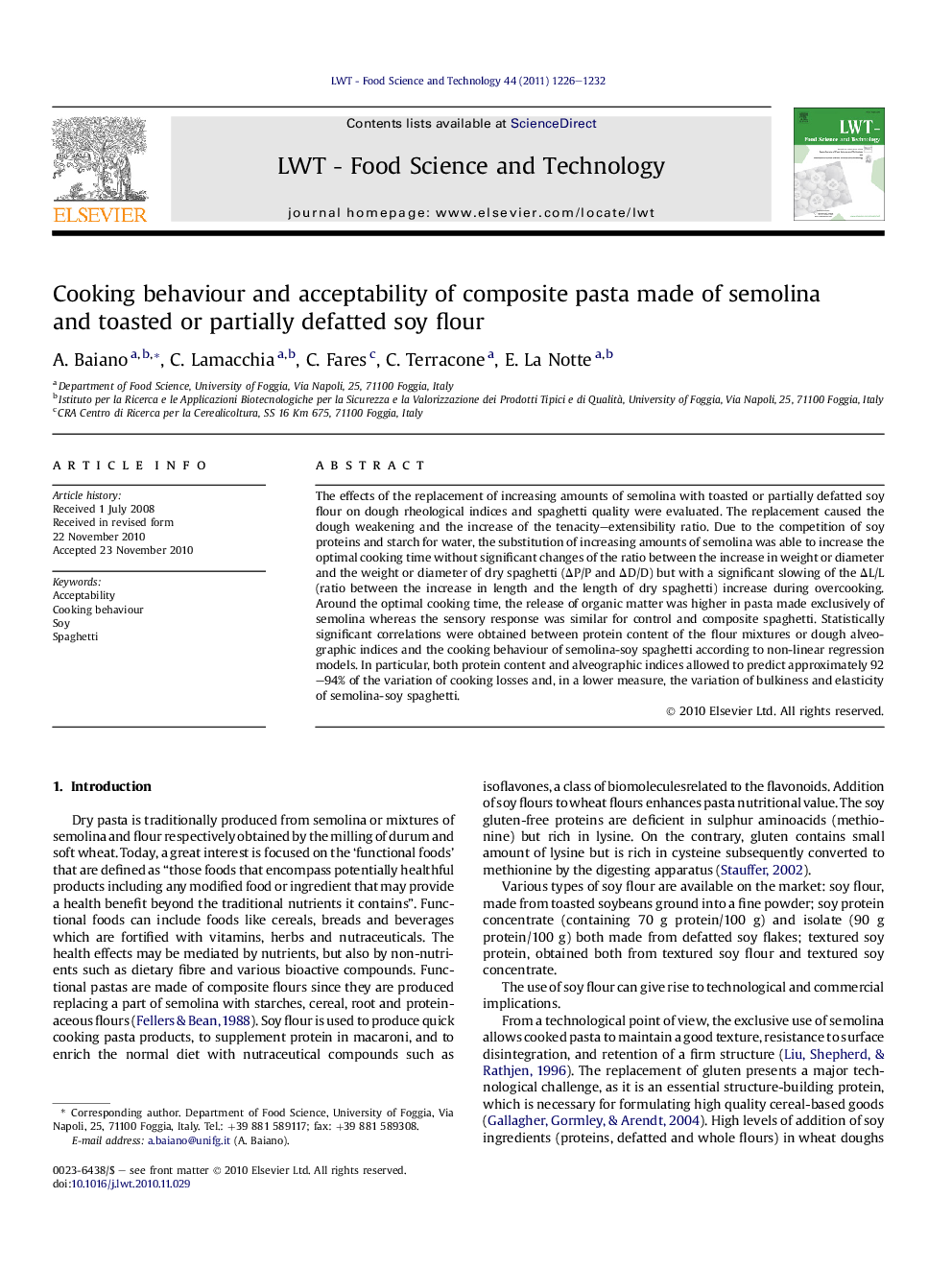| کد مقاله | کد نشریه | سال انتشار | مقاله انگلیسی | نسخه تمام متن |
|---|---|---|---|---|
| 4564385 | 1330935 | 2011 | 7 صفحه PDF | دانلود رایگان |

The effects of the replacement of increasing amounts of semolina with toasted or partially defatted soy flour on dough rheological indices and spaghetti quality were evaluated. The replacement caused the dough weakening and the increase of the tenacity–extensibility ratio. Due to the competition of soy proteins and starch for water, the substitution of increasing amounts of semolina was able to increase the optimal cooking time without significant changes of the ratio between the increase in weight or diameter and the weight or diameter of dry spaghetti (ΔP/P and ΔD/D) but with a significant slowing of the ΔL/L (ratio between the increase in length and the length of dry spaghetti) increase during overcooking. Around the optimal cooking time, the release of organic matter was higher in pasta made exclusively of semolina whereas the sensory response was similar for control and composite spaghetti. Statistically significant correlations were obtained between protein content of the flour mixtures or dough alveographic indices and the cooking behaviour of semolina-soy spaghetti according to non-linear regression models. In particular, both protein content and alveographic indices allowed to predict approximately 92–94% of the variation of cooking losses and, in a lower measure, the variation of bulkiness and elasticity of semolina-soy spaghetti.
Journal: LWT - Food Science and Technology - Volume 44, Issue 4, May 2011, Pages 1226–1232